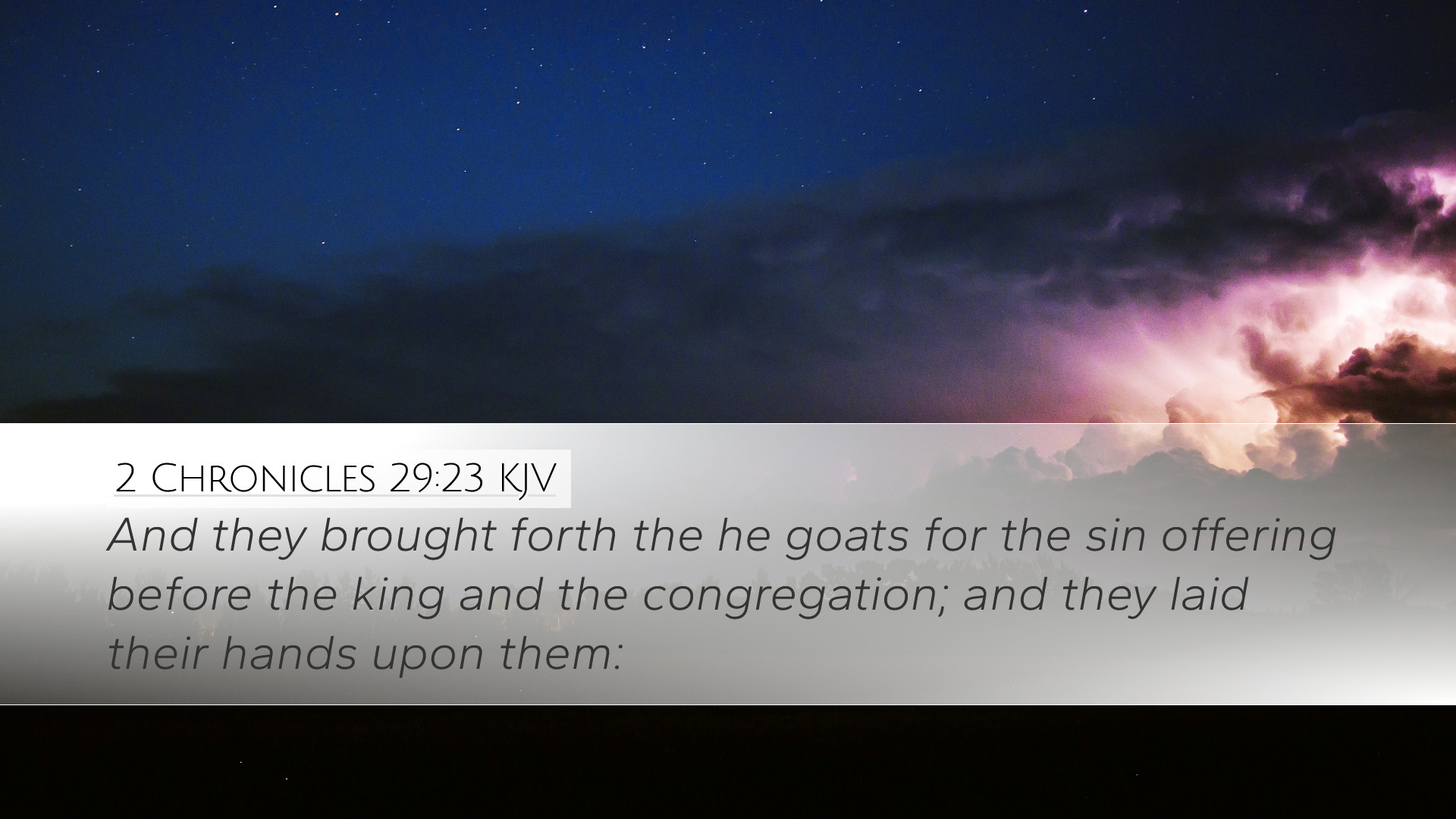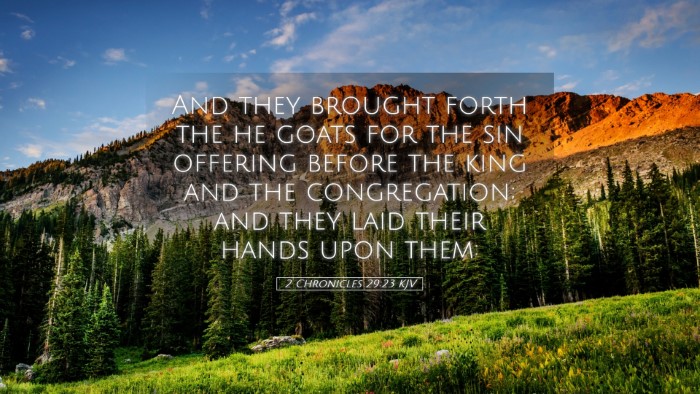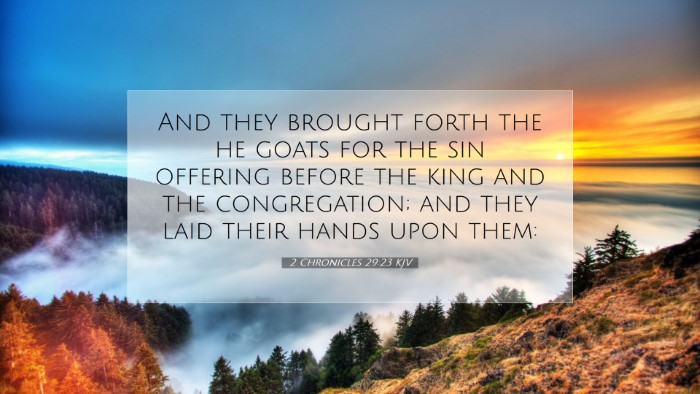2 Chronicles 29:23 - Bible Commentary
This passage, 2 Chronicles 29:23, presents a significant moment in Israel's history, particularly concerning the restoration of worship and the renewal of the covenant with the Lord under King Hezekiah. For pastors, students, and theologians alike, this verse offers profound insights about repentance, divine mercy, and the importance of proper worship.
Verse Context and Analysis
In this verse, we find the account of King Hezekiah's actions to restore temple worship after a period of neglect. The verse reads:
"And they brought forth the kids of the goats for the sin offering before the king and the congregation; and they laid their hands on them:"
Cultural and Historical Significance
The actions described in the verse are rooted in the cultural practices of ancient Israel, where sin offerings were an integral part of atonement rituals. According to Matthew Henry, this act signifies a collective acknowledgement of sin and a corporate response to the need for redemption.
Spiritual Implications
Hezekiah’s leading of the people in worship and sacrifice illustrates the biblical principles of leadership and communal repentance. Albert Barnes notes that this moment reflects the nation's return to God, emphasizing how a leader's actions can influence the spiritual state of the people.
Restoration and Repentance
Hezekiah’s actions also indicate the importance of repentance in the life of the believer. Adam Clarke discusses the connection between sin offerings and the restoration of the soul's relationship with God. The laying of hands on the goats symbolizes the transfer of sin and guilt, highlighting the principles of substitution and atonement.
Theological Themes
- The Atonement: The sin offering points to God’s requirement for atonement through sacrifices, prefiguring the ultimate sacrifice of Christ.
- Leadership in Worship: The role of Hezekiah as a leader illustrates the call for pastors and church leaders to guide their congregations in worship and genuine repentance.
- Community Responsibility: The collective participation in these rituals signifies the communal aspect of sin and restoration, reminding believers of their shared responsibility in upholding spiritual values.
Application for Today's Church
As we reflect upon this verse in the context of modern worship, there are several key applications:
- Emphasis on Holiness: Churches should prioritize the importance of holiness and the seriousness of sin in their teachings.
- Restoration Practices: There should be practical ways for congregations to engage in acts of restoration, such as community confessions and corporate prayers.
- Leadership Example: Leaders must embody the principles of faith, integrity, and commitment to God, providing a model for others to follow.
Conclusion
2 Chronicles 29:23 serves as a powerful reminder of the dual themes of repentance and restoration within the community of faith. Drawing from public domain commentaries enriches our understanding of the text and encourages a deeper exploration of its implications for worship and leadership today. Through this verse, believers are reminded of God's readiness to forgive and restore those who earnestly seek Him.


